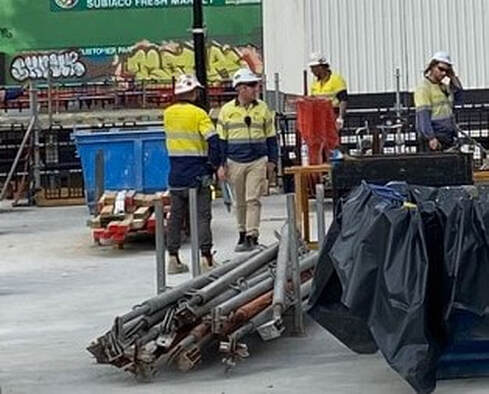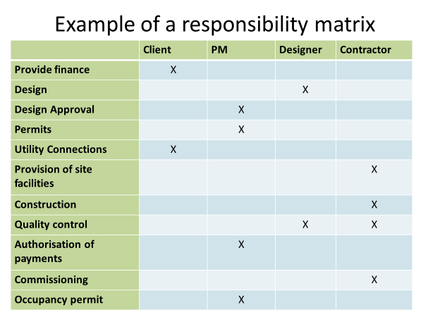“Good communication is essential to the success of your construction projects.”
Effective communication within construction teams is the glue that holds together every aspect of a construction project. It ensures that it progresses smoothly and efficiently. In the intricate web of construction tasks, from planning and design to execution and completion, miscommunication can lead to costly construction delays, errors, and even safety hazards. Communication strategies in construction teams aren’t merely a buzzword but an indispensable factor in the industry’s success. Every message relayed, every detail clarified, and every issue resolved all contribute to the good operation of a construction project. In this article, we will explore the significance of clear and concise communication in construction teams and the strategies that can help bridge the gap between diverse roles and tasks. Join us to unlock the power of effective communication in the construction domain.
Clear Communication
Clear and concise communication is the cornerstone of successful construction projects. When communication falters, the consequences can be dire. Specifically, misunderstandings, errors, and delays become commonplace, jeopardizing the project’s budget and timeline. Further, unclear communication can lead to accidents and safety hazards, putting the well-being of the construction team at risk. To mitigate these issues, straightforward language is key. Conversely, using jargon or convoluted terminology can muddy the waters and create confusion. Instead, when construction team members communicate in plain and simple terms, everyone involved can easily grasp the message, reducing the likelihood of errors and misinterpretations. In the construction industry, where precision and coordination are paramount, the benefits of clear communication are crystal clear—smoother operations, fewer mistakes, and a higher likelihood of project success. Does Your Team Know What’s expected From Them

Photo by Mikael Blomkvist: www.pexels.com
“With clear and honest communication, you can avoid many misunderstandings and difficulties.”
Construction Team Meetings
Regular team meetings are important in the construction industry, serving as a linchpin for effective collaboration. These gatherings are forums for sharing vital information and making sure every team member is on the same page regarding project objectives, progress, and changes. Also, team meetings offer a platform for resolving issues promptly. When challenges arise, they can be addressed collectively. This allows diverse perspectives to be heard and solutions to be devised collaboratively. You should follow some key tips to ensure that team meetings truly serve their purpose. These can include setting a clear agenda, maintaining punctuality, and encouraging active participation are among the hallmarks of effective team meetings. Incorporate these strategies and transform routine gatherings into effective team meetings that drive project success and foster a culture of open communication within your construction team.
project staff meetings – are they adding value to your project?
Use Digital Tools on your Construction Projects
Digital tools play an important role in revolutionizing communication within construction teams. They offer a range of advantages that streamline project management and facilitate effective information exchange. Project management software, such as Trello and Asana, empowers teams to track tasks, deadlines, and progress in real time, ensuring everyone knows their responsibilities. At the same time, communication apps like Slack and Microsoft Teams provide instant messaging and file-sharing capabilities, promoting quick and efficient exchanges of information. Additionally, cloud-based platforms like Google Workspace and Dropbox enable seamless collaboration on documents and drawings, eliminating the need for cumbersome email chains. These digital tools enhance communication and centralize project-related data, fostering a more organized and efficient workflow.
Can technology help your construction project?
Roles and Responsibilities on the Construction Project Must be Clear
When team members understand their roles and expectations, it prevents confusion and minimizes the risk of task overlaps. This clarity enables a more organized and efficient workflow, reducing the likelihood of errors and bottlenecks. For instance, a construction manager oversees the entire project, while an architect focuses on design aspects. A construction worker, on the other hand, concentrates on executing tasks on-site. In contrast, ambiguous or overlapping roles can lead to confusion, delays, and even disputes among team members. Role-based communication ensures that each individual knows who to report to, who to collaborate with, and how to communicate effectively within their sphere of responsibility.
What does it take to manage a construction project?
“When team members understand their roles and expectations, it prevents confusion and minimizes the risk of task overlaps.”
Feedback Loop
- Creating a feedback loop within construction teams holds immense significance.
- Feedback catalyzes continuous improvement, driving efficiency and quality. It allows team members to identify strengths and areas for development. providing feedback to the construction project team
- Constructive feedback can enhance communication and collaboration. Tips for giving feedback include being specific, focusing on behavior, and offering solutions.
- When receiving feedback, it’s essential to remain open, listen actively, and ask clarifying questions. Are you listening?
- Feedback should be timely, regular, and balanced, acknowledging achievements and improvement areas. Additionally, a constructive feedback culture fosters trust and encourages a growth mindset among team members.
Conflict Resolution in Construction Teams
Conflict is inevitable in construction teams, but effective communication is the key to resolving disputes and maintaining team harmony. Communication strategies in construction teams are critical when it comes to addressing conflicts. Effective communication allows team members to express their concerns, needs, and viewpoints openly. However, you must remember that conflicts can also arise due to miscommunication. Therefore, clear and precise communication and active listening play a pivotal role in conflict resolution. Strategies for handling disputes include staying calm and composed during conflicts, focusing on the issue at hand rather than personal differences, and seeking compromise or alternative solutions. Regular team meetings and feedback sessions can also provide opportunities to address conflicts proactively, preventing them from escalating. Ultimately, embracing effective communication strategies fosters a collaborative environment, helping construction teams navigate conflicts and maintain their efficiency and cohesion. Conflict Resolution and Prevention on Construction Projects

Photo by Yan Krukau: www.pexels.com
“Conflicts and disagreements can easily occur in the stressed world of construction, but you must manage and promptly resolve issues before they destroy the team and the project.”
Training and Development
Training for communication skills is a vital investment that can yield substantial benefits. Construction projects can enjoy improved coordination and collaboration by equipping team members with effective communication tools. Investing in training allows individuals to better understand the nuances of communication, from active listening to conveying messages. As a result, team members can express ideas and concerns more effectively, reducing misunderstandings and conflicts. Honed communication skills enable teams to adapt to changes swiftly, respond to challenges more efficiently, and foster a positive and productive working environment. In construction where precision and teamwork are essential, training for communication skills emerges as a crucial element in ensuring construction teams perform at their best. Training and mentoring in construction
Good Communication is Essential for Successful Construction Projects
In conclusion, the significance of communication strategies in construction teams cannot be understated. We’ve explored the critical role of clear and concise communication, the benefits of regular team meetings, the empowerment of digital tools, the importance of defined roles and responsibilities, the value of creating a feedback loop, and the role of communication in conflict resolution. Moreover, we’ve highlighted the transformative power of training for communication skills. Effective communication is the linchpin that holds construction projects together, ensuring efficiency, minimizing errors, and fostering a collaborative atmosphere. We encourage you to implement these strategies, enhancing your team’s communication and, ultimately, the success of your projects. Don’t miss the chance to build better with better communication.
12 important phrases to use in construction
the importance of good communication on projects
#constructionmanagement #constructionprojectmanagement #construction
Author
Lucy Tray is an experienced professional at Hansen’s Moving and Storage CA specializing in commercial moves and logistics. With a background in project management, Lucy understands the pivotal role of effective communication in ensuring seamless transitions during projects.
This article is a guest post and the owners of this website take no responsibility for the content or it’s originality. The website publishes this article in good faith with the undertaking from the author and supplier that the content has not been plagiarised. Please report any errors in the article to the website owners. Should you prove the content is not original the article will be immediately taken down.
Do you want to learn how to manage construction projects successfully?
“This book helps with practical tips learned from real experiences. A must read book for the people who are involved in construction projects, especially project managers.”
Paul Netscher has written several easy to read books for owners, contractors, construction managers, construction supervisors and foremen. They cover all aspects of construction management and are filled with tips and insights.
Visit to read more.
The books are available in paper and ebook from most online stores including Amazon.
Note: We welcome genuine comments, especially comments that add additional information to the subject matter in the article. We however reserve the right to remove inappropriate comments, which includes comments that have nothing to do with the subject, comments that include inappropriate language, and comments that are an advertisement for a product or company, or which include an advertising link. We will not enter into discussion on why a particular comment was removed.




